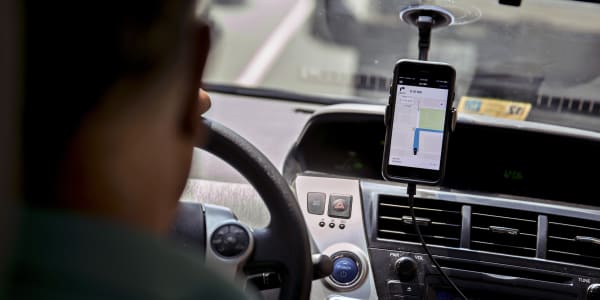
America's addiction to painkillers has become an epidemic.
Since 1999, deaths from opioids — drugs like oxycodone, hydrocodone and methadone — have quadrupled, killing 78 Americans every day, according to the Centers for Disease Control and Prevention.
Many of these addictions and overdoses started with a doctor's prescription. The amount of prescription opioids sold in the U.S. has also quadrupled in the same time frame.
Chronic pain affects more than 100 million Americans, more than the total affected by heart disease, cancer and diabetes combined, according to the Institute of Medicine, so it is no wonder that doctors are prescribing more opioids than ever before. But diagnosing pain can be a daunting task for doctors.
"It is challenging to determine the true level of the patient's pain because somebody may say their pain is 8 out of 10 ... but somebody else could have the exact same level of pain that has a different chemical makeup and they might say that their pain is only a 5 out of 10." said Dr. Karim Abdollahi, an orthopedic surgeon in Laguna Beach, California. "It's very subjective."
In July, President Barack Obama signed into law the Comprehensive Addiction and Recovery Act to address the opioid crisis, which authorizes $181 million each year in new funding to fight the epidemic. But one private company is hoping its new technology could help.
Brian Meshkin founded Irvine, California-based Proove Biosciences in 2009. The company developed a portfolio of tests that can determine someone's pain profile and tolerance to different pain medications to give doctors more information before prescribing medication.
"The zero to 10 scale or smiley faces and sad faces is how we diagnose the most prevalent and the most expensive health-care condition in the United States," Meshkin said. "There's a lot of irrational decision-making. So our business is all around improving those important and sometimes life-threatening decisions."
From a simple cheek swab, DNA and genetic information can be analyzed in combination with clinical assessments from the patient to evaluate pain tolerance, assess patient drug metabolism, predict response and risks to opioid and non-opioid pain medication, and identify predisposition for opioid dependence. It gives doctors clear evidence on what works and what won't for their patients.
Meshkin said the company is quickly growing and has sold 30,000 tests. With each patient, the algorithm becomes more precise. But only about 300 doctors in the U.S. are using the test so far.
Abdollahi has been using the Proove test since last year. He said he was skeptical at first, but after using the test for months, Abdollahi says "it works" and now he administers the test to at least a hundred patients each month.
He explained that someone's genetic makeup, the amount of enzymes and specific receptors they have, contribute to how a person can metabolize medicine. So a genetic test that breaks down that information for him, makes prescribing painkillers a lot easier. Before the Proove test, he said, it really was just a guessing game.
"Knowing what kind of genetic makeup a patient has before we start giving them medications would go a long way to prevent opioid addiction," said Abdollahi. "I'm sure other doctors will catch on. It may become one of the tools that everyone would be expected to use before dispensing medications."
Abdollahi said that one improvement would be for the test results to come back more quickly. At the moment, it takes two to three weeks to get the results.
Proove is working toward FDA clearance on the various tests it offers and Meshkin said it is hiring a sales team this year to ramp up awareness. Most insurance companies cover a majority of the cost of the $1,000 test. Meshkin is working to get all insurance companies on board, saying in the long run, the test will save them money.
Meshkin originally funded the business with his own money. In early 2015, Proove received a $3.5 million convertible note as the first investment from Leavitt Equity Partners, as Michael Leavitt, former governor of Utah and secretary of the U.S. Department of Health and Human Services joined its board of directors. The company is in the process of raising its first round of capital from private equity funds.





